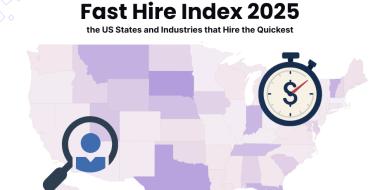How To Write a Resume With No Experience
It might seem like a challenge to write an effective resume when you have no professional work experience, but you can still showcase your skills, qualities, education, and other experiences that have helped prepare you for your first professional role.

This article will cover how to leverage your strengths to show potential employers that you are a good fit for the position even though you have little or no work experience, as well as which sections to include on your resume and how to arrange them.
How to highlight your skills with no work experience
The primary goal of a resume is to show potential employers that you will be an asset to their business. Those who have been in the workforce for at least a few years typically do this by showing how their previous positions have provided them with experience and skills that line up with the new job.
However, if you don’t have professional work experience, you can still list and demonstrate your skills. Employers look for hard skills (job specific and/or technical skills) as well as soft skills (people skills or personal characteristics) in job candidates. Soft skills are much more difficult to teach than hard skills, and they are applicable in almost any industry. So, if you can show employers that you have leadership skills, interpersonal skills, excellent communication skills, and other desirable soft skills, that can be just as powerful as listing an impressive work history.
When hiring for entry level jobs, most employers expect that you won’t have a wealth of professional experience. Showing that you possess soft skills as well as the ability and drive to learn new hard skills will help demonstrate your value as a potential employee.
Finally, you can highlight your skills most effectively by tailoring your resume to each job opening. To do this, read through the job posting carefully and identify keywords that describe the skills and experience that the employer is looking for. Then use those specific keywords in your resume to show how your skill set matches up with what the employer needs.
Doing so will not only help your resume pass applicant tracking system (ATS) scans, but it will also show the employer that you took the time to carefully read the job posting and customize your resume to the position.
How to make a resume with no experience stand out with transferable skills
When learning how to make a resume for first job with no experience, it’s crucial to focus on transferable skills. Just because you’ve never had a job before doesn’t mean you’re coming to the table empty-handed. In fact, you likely have many of the abilities the employer is looking for, such as:
- Communication
- Teamwork
- Problem-solving
- Time management
If you’ve ever played a sport or been part of a club, you know how to work on a team. Similarly, if you’ve had to get creative to submit an important project before a deadline, you’ve got problem-solving skills.
When learning how to make a resume with no work experience, don’t sell yourself short. Think back on your life experiences and present them as skills a hiring manager will value.
Sections to include on your resume
Since the focal point of your resume will not be your work experience, you’ll likely want to adjust the typical arrangement of resume sections to better highlight your skills and qualities. Be sure to include the following sections:
Header
Start with a resume header that includes your full name, your contact information (your phone number and a professional email address), and your LinkedIn URL if you have one. Your name should be the biggest text on your resume. You can also include your address or general location information, links to an online portfolio/blog/website, or social media links (only if they are relevant to the job).
Resume objective
Below your header, include a resume objective statement. A resume objective is a brief overview of your skills, qualities, professional goals, and how you will be an asset to the company. A hiring manager will often spend less than 10 seconds scanning each resume that lands on their desk, so providing a succinct summary can catch their attention and convince them to continue reading your resume and ultimately to offer you an interview. Always mention the company and the position that you are applying for by name in your objective.
Your resume objective should succinctly convey your enthusiasm and the value you bring. For example:
“Motivated and detail-oriented aspiring financial analyst with strong problem-solving skills, eager to contribute to XYZ company.”
If you aren’t sure what to write in your resume objective, you may wish to write the rest of your resume first and then come back to your objective at the end. That way you can summarize everything that you’ve already included.
Education
Next, highlight your education. Use a reverse-chronological format - start with your current or most recent school experience and work backwards from there (e.g. list your college and then your high school). If you are still in high school or college or if high school is your highest level of education, include your high school information on your resume. Otherwise (if you have already graduated from college or are earning a postgraduate degree), you can generally omit your high school information and use that space for other important details.
For each school that you list, include the school name and location and your graduation date or anticipated graduation date. You can also include your GPA (if it’s above a 3.5), relevant coursework, your major or area of study, awards and honors, school clubs or organizations, leadership roles (such as student council), extracurricular activities, study abroad, and so forth. However, ensure that everything you add to your education section is relevant to the job that you are applying for.
Experience
Even though you don’t have much or any professional work experience, you can still include relevant life experience. For example, maybe you babysit, walk dogs, or mow lawns for your neighbors - you likely have experience with time management and finding and retaining clients. Or perhaps you enjoy throwing elaborate birthday parties for your friends or have planned school dances with your student council, which has honed your event planning skills, budgeting abilities, and so forth.
Once you identify a position that you want to apply for, read the job description to find the keywords as outlined above, and think about what you’ve previously done that has allowed you to hone relevant skills. Then outline these transferable skills using the keywords you’ve found and resume action words to give your accomplishments extra impact.
Expert Tip:
Skills
Although you can and should mention your skills throughout all sections of your resume, you can create a dedicated skills section as well. You may wish to include subheadings for hard and soft skills. Be sure that the skills you include in this section match the skills that you’ve mentioned elsewhere on your resume - repetition of a few key skills and instances of how you gained and honed those skills will be more powerful than listing dozens of skills with no details to back them up.
Resist the temptation to exaggerate your skills or qualifications, or to lie in any way on your resume. There’s a high chance that the employer will catch you in the lie, which could mean that you don’t get hired, you get fired if you’ve already been hired, or your reputation can be damaged. It’s much more effective to highlight and back up the skills that you actually have.
Optional resume sections
Finally, you can add some optional sections to flesh out your resume. Keep in mind that your resume should be no longer than a single page, so only add additional sections if you have extra room. Optional resume sections include languages, certifications, hobbies and interests, and awards.
Tips for grads
If you’re a recent graduate, your best bet when crafting an entry-level resume is to focus on the following elements:
- Academic achievements
- Relevant coursework
- Campus involvement
- Extracurricular activities
Participation in student councils or sports teams can showcase leadership and teamwork skills.
Tips for career changers
If you’re changing careers, make transferable skills and quantifiable achievements the backbone of your resume. You’ll need to align your existing skills and experience with your new career path, even if they originate from unrelated fields.
For example, mentioning a project you’ve led and the outcome shows hiring managers that you know how to deliver results — it doesn’t matter that you’re coming from a different sector.
Example of resume with no experience
Here is an example of how a resume might look for a college student applying for her first job:
Jane Smith
(111) 222-3333
jane.smith@example.edu
linkedin/in/janesmith
Motivated and outgoing honors student pursuing a BA in Marketing at Ohio State University (3.9 GPA). Eager to join XYZ Company as a Marketing Specialist to help establish and develop client relationships and implement marketing strategies to grow revenue. Strong educational background in consumer psychology and behavior, copywriting, and designing effective marketing materials.
Education
Ohio State University, Columbus, OH
Anticipated Graduation Date: Spring 2022
- BA in Marketing
- GPA: 3.9
- Dean’s List every semester
Relevant Coursework:
- Consumer Psychology/Behavior
- Sales Copywriting
- Sociology of Digital Culture
Columbus High School, Columbus, OH
Graduated 2018
- GPA: 4.0
- Honor Roll every semester
- Student Council President
Experience
Marketing Intern, ABC Marketing
Summer 2021
Columbus, OH
- Learned new marketing techniques
- Created, implemented, and analyzed data from a successful summer marketing campaign
- Presented all aspects of summer marketing campaign to internship directors
- Networked at marketing events
Humane Society Volunteer
2017-2019
Columbus, OH
- Helped create marketing materials for fundraisers and events
- Raised monetary and supply donations through phone calls and emails
- Implemented a successful community drive to obtain 100 desperately needed cat blankets
Skills
- Analytical skills
- Creative thinking
- Communication (written and oral)
- Consumer psychology
- Fundraising
- Interpersonal skills
- Marketing
- Persuasion
- Presentation skills
Languages
- Spanish (conversational)
Hobbies and Interests
- Animal welfare
- Reading travel memoirs
"When hiring for entry level jobs, most employers expect that you won’t have a wealth of professional experience. Showing that you possess soft skills as well as the ability and drive to learn new hard skills will help demonstrate your value as a potential employee."
Key takeaways
It’s entirely possible to write an effective resume without work experience. Instead, you can highlight your education, skills, and qualities to show potential employers that you will be a valuable asset for the company.
Need help creating a resume for your first job? Consider using Jobseeker’s resume creation tool, which allows you to enter your information, test out a variety of different styles and layouts, and then download your polished resume instantly so you can get started applying for jobs right away!
Impress potential employers with your resume
Follow step-by-step professional guidance to create a polished resume in minutes.








